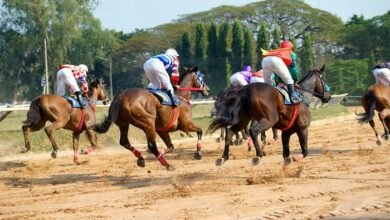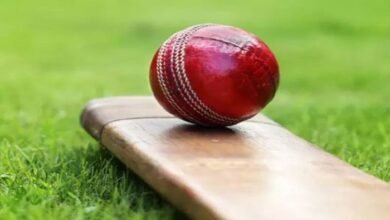The Art of Goalkeeping and Its Importance in Football

Goalkeeping is one of the most critical roles in football. Often described as the last line of defense, goalkeepers not only prevent the opposition from scoring but also play a significant role in organizing the defense and initiating attacks. This article explores the skills, challenges, and importance of goalkeeping in football.
The Role of a Goalkeeper in Football
Goalkeepers are central to a team’s defense and are the only players allowed to use their hands within the penalty area. Their responsibilities go beyond making saves, as they often act as leaders and strategists on the field.
Responsibilities of a Goalkeeper
A goalkeeper’s primary duty is to prevent goals by stopping shots on target. They must also organize the defensive line, communicate with teammates, and make quick decisions to intercept crosses or clear balls. Their ability to read the game often determines the outcome of matches.
Leadership on the Field
Goalkeepers are often seen as leaders because they have a unique perspective on the game. Positioned at the back, they can observe the entire field and provide instructions to defenders. Their vocal presence helps maintain team structure and focus during high-pressure situations.
Essential Skills for a Goalkeeper
Goalkeeping requires a unique set of skills that combine physical agility, mental sharpness, and technical proficiency. Mastering these skills is essential for success in this demanding position.
Reflexes and Agility
Quick reflexes are crucial for goalkeepers to react to fast-moving shots. Agility allows them to cover large areas of the goal with swift movements, making it harder for attackers to score.
Positioning and Anticipation
Good positioning helps goalkeepers reduce the angle for attackers, making it easier to save shots. Anticipation involves reading the game and predicting the opponent’s moves to stay one step ahead.
Ball Handling and Distribution
Secure ball handling prevents errors and second chances for the opposition. Accurate distribution, whether by hand or foot, is essential for starting counterattacks and maintaining possession.
The Challenges of Goalkeeping
Goalkeeping is a mentally and physically demanding role that requires exceptional focus, resilience, and adaptability. The challenges faced by goalkeepers are unique compared to other positions in football.
Mental Pressure and Decision-Making
Goalkeepers often face immense pressure as their mistakes are more visible and can directly impact the game’s outcome. Making split-second decisions, such as when to leave the goal line or dive for a save, is a critical part of their role.
Physical Demands and Training
Goalkeepers must endure intense physical training to develop strength, flexibility, and endurance. Diving, jumping, and reacting quickly to shots place significant strain on their bodies, making proper fitness and recovery essential.
Adapting to Modern Football
Modern ставки футбол has transformed the goalkeeper’s role, requiring them to act as “sweepers” and contribute to ball possession. This evolution demands higher technical skills and adaptability to different playing styles.
The Impact of Goalkeepers on Team Performance
Goalkeepers significantly influence a team’s performance, not only by making crucial saves but also by contributing to the team’s overall strategy and morale.
Saving Crucial Moments
A goalkeeper’s ability to make critical saves in decisive moments can shift the momentum of a game. Their performances often inspire confidence among teammates and fans.
Building Confidence in Defense
A reliable goalkeeper assures the defensive line, allowing outfield players to focus on their roles. This trust enhances the overall stability of the team.
Starting Counterattacks
Goalkeepers with excellent distribution skills can initiate quick counterattacks, turning defense into offense in a matter of seconds. This dual role highlights their importance in modern football.
Training Techniques for Goalkeepers
Specialized training is essential for goalkeepers to hone their skills and adapt to the dynamic nature of football. This section explores the methods used to prepare goalkeepers for competitive matches.
Drills for Reflexes and Reaction Time
Training drills, such as rapid-fire shots and reaction balls, help improve a goalkeeper’s reflexes. These exercises simulate real-game scenarios, enhancing their ability to react quickly.
Strength and Conditioning
Strength training focuses on building the core and leg muscles to improve diving and jumping abilities. Conditioning exercises ensure goalkeepers have the stamina to perform consistently throughout a match.
Game Analysis and Mental Preparation
Studying opponents’ tendencies and analyzing game footage is crucial for mental preparation. Goalkeepers use this information to anticipate specific situations and refine their decision-making.
Conclusion
The art of goalkeeping is a blend of technical skill, mental fortitude, and physical endurance. As the last line of defense, goalkeepers play a pivotal role in shaping the outcome of matches and influencing team dynamics. Their contributions, often understated, are fundamental to the beauty and complexity of football.




